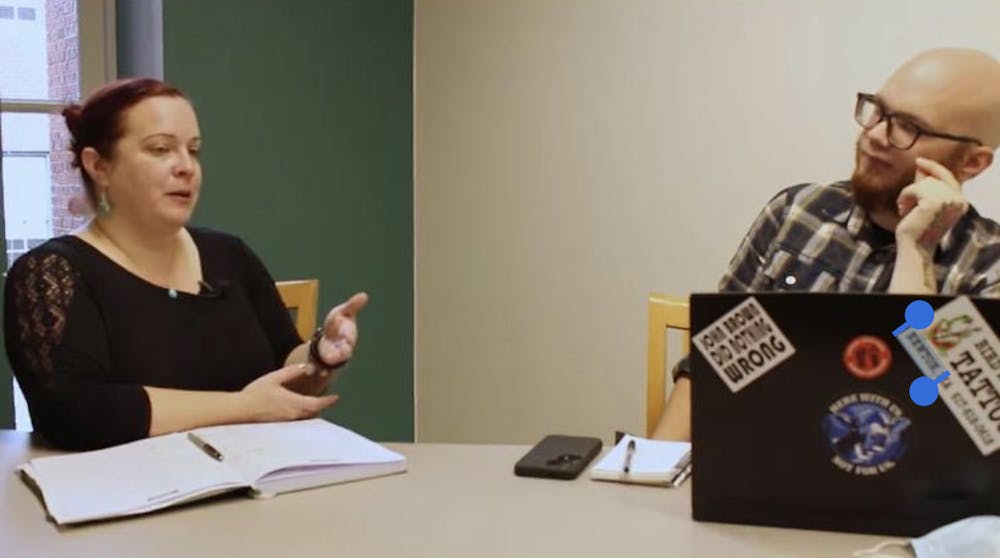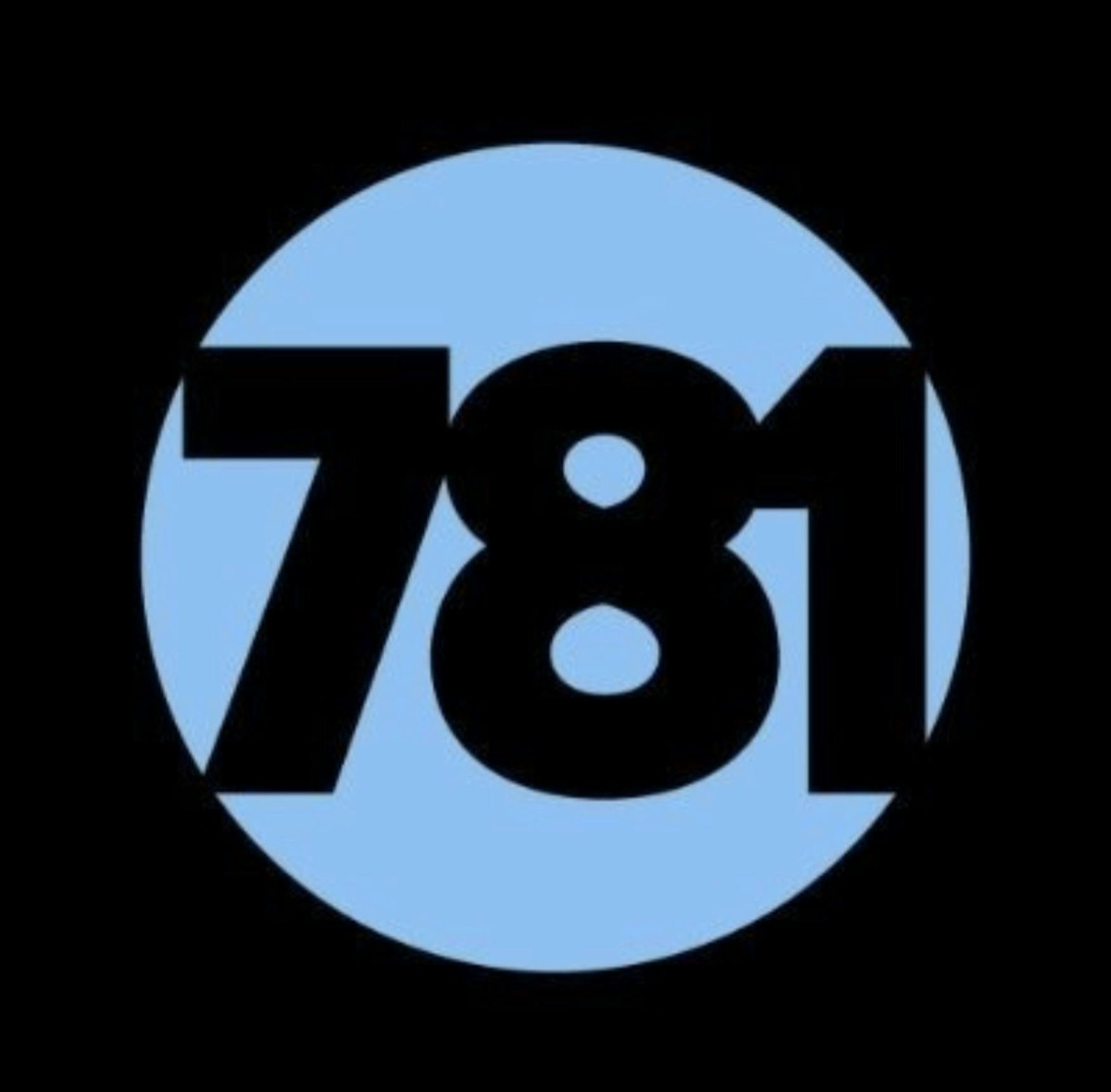The shutdown of Channel 781 and what it means for political literacy in Waltham
Since 2021, the volunteer-run Channel 781 posted YouTube breakdowns of Waltham political issues for community education purposes. Now, its shutdown raises questions about the liabilities of civic engagement in the city.
Editor’s note: Justice editors Cayenn Landau and Leah Breakstone were interviewed by Channel 781 in 2021. Neither contributed to the reporting of this article.
On a typical Monday night, as the Waltham City Council meets in the chambers of City Hall, the volunteer newscasters of Channel 781 can be found taking notes to add to their substantial cache of social media political content — which recently was decimated by a vague copyright claim from the Waltham Community Access Corporation Channel.
Josh Kastorf, James Krikeles, and Chris Gamble, who have been casual attendees of city government meetings and have connected over their shared perspectives, observed the COVID-induced switch in 2020 to captioned Zoom livestreams. However, when the meetings returned to an in-person format in June 2021, the livestreams were replaced by recordings managed by the WCAC.
“Meetings that were deemed less important by the WCAC, like licenses and franchises for stores and shops, just wouldn’t get recorded [by WCAC]. Basically, I just showed up with a cell phone camera on a tripod and live streamed them on our YouTube page, and that developed into us adding commentary,” Krikeles told the Justice during a Zoom interview on Sep. 13.
With Kastorf managing an associated public Instagram account, @grouchesofwaltham, Channel 781 on YouTube became a consistently updated roundup of Waltham politics. The channel frequently posted annotated clips from city council meetings, interviews with local figures and candidates, and special reports on upcoming events like elections or public forums.
“I’m an engineer,” said Krikeles, who has called Waltham home for over 10 years. “If I see a problem, I try to find a concrete way to address it and most of these meetings are weaponized boredom. You need context. You need to know how the Roberts Rules [rules for parliamentary order] work; you need to know what to tune out in order to understand what’s actually happening.”

Throughout the course of a typical three-hour city council meeting, it’s likely that civilians will lose their place, or their interest, in the proceedings. Channel 781 works to reignite engagement in representative government. “I don’t view democracy as stopping when you show up to vote,” Krikeles said. But because these clips were taken from recordings made by the WCAC, the private company was able to report copyright infringement through YouTube, which resulted in Channel 781 being taken down. “The work we do is take that footage [of City Council meetings], find the things that we think would be interesting to people, clip them and maybe add commentary of our own. Which, as far as we're concerned, is a fair use of copyrighted material. But we still don't have any clear indication of what specific material was reported — our whole channel was just shut down.”
Incorporated as a nonprofit in 1985, WCAC broadcasts from two channels: WCAC-TV, which provides programming geared towards the interests of local residents, businesses, and organizations, and MAC-TV, which provides coverage of municipal meetings and government related programming.
Executive Director of WCAC Maria Sheehan’s online background states her position as responsible for “encouraging townspeople, civic groups, and non-profits to use the facilities to educate the public.” But Krikeles says that his team received direct communication from Sheehan stating that the only path forward for Channel 781 to use WCAC captured footage, even following the fair use doctrine, would be to get approval on each clip and piece of commentary, essentially giving up editorial control.
WCAC did not respond to a request for comment.
WCAC’s ties to the Waltham City Council raised questions for Kastorf, Krikeles, and Gamble, who often use WCAC clips to provide context for their concerns towards the City Council. One example Krikeles cited as concerning was that the chair of Community Preservation on the Waltham City Council is also the president of the board of WCAC. Additionally, he is president of the board of Middlesex Human Service Agency, Inc (MHSA). Channel 781 has criticized MHSA in past videos for managing homeless shelters in Waltham that operate in violation of the Americans with Disabilities Act (ADA) regulations.
Krikeles also pointed out the insularity of Waltham politics in a very relevant sphere for the University’s student housing. In 2021, Massachusetts passed the Massachusetts Bay Transportation Authority (MBTA) Communities Law to address suburban housing shortages, which requires that 177 cities and towns along the MBTA stops must change zoning regulations to allow for multi-family homes by-right, or without discretionary approval. Waltham’s plan to develop the community surrounding the Carter Street stop in accordance with the new law was approved, but frequently cited zones that were already in compliance, and claimed that Waltham was “ahead of the concept” of multi-family housing. This does not account for approximately half of residentially-zoned land in Waltham being single-family exclusive. The new plan leaves a great deal of impetus, responsibility, and control of housing development with the City Council — “zoning is the purview of the City Council, and anything will have to be agreed to by them…” — which, until recently, was closely monitored by Channel 781. Comprehensive catalogs, debriefs, and analyses of council meetings were lost when the YouTube channel was shut down, meaning that citizens wishing to revisit them have to navigate tomes of PDFs on Waltham’s website.
One of the most relevant issues for Brandeis students is access to affordable housing and subsequent safe transportation to campus. Krikeles found that the seeds for reforms on pedestrianization and bike safety have been planted in City Council meetings, with “overwhelming support” expressed by nonstudents in Waltham. Without the momentum generated by widely accessible and comprehensible political content made by Channel 781 and Grouches of Waltham, this enthusiasm for change could die out. With the Municipal Election coming up on Nov. 7, on which a new mayor, six councilors-at-large, nine ward councilors, and three school committee members will be elected, engagement from the University’s students could be extremely consequential.
To students, Krikeles said, “You should view yourselves as residents of the city. People make it about us versus them, residents versus students, but ordinances get brought in that affect all of us.” He pointed to leverage that the city has over Brandeis to enforce better housing conditions, implement better bike lanes and public transit, and set up social welfare systems that benefit everyone, student or otherwise.
On the topic of these reforms and how to make them a reality, Channel 781 is back up and running on YouTube. However, the channel only supplies the fuel for change. Krikeles, Kastorf, and Gamble rely on regular community members like themselves to truly make a difference. “You need to be paying attention to city government because that is what dictates how housing is set up. If you’re organized, you have a much better chance of getting listened to.”



Please note All comments are eligible for publication in The Justice.